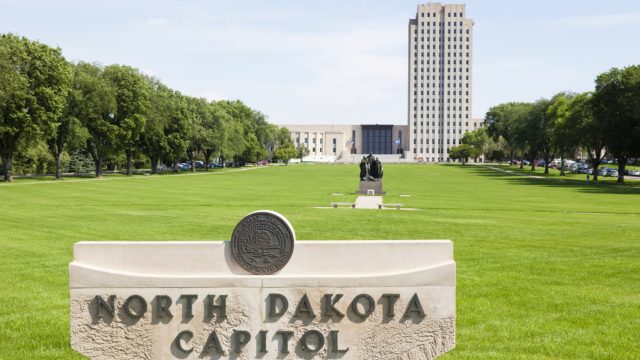Ouch: North Dakota Tax Revenue Numbers Come In 28 Percent Under Forecast In May

 One thing a lot of people miss when they talk about North Dakota’s budgets and revenues is that everything is built on top of forecasts. When lawmakers met earlier this year to make spending decisions they were basing those decisions not on money the state actually has sitting in a bank account somewhere, but money the state is forecasted to collected throughout the biennium.
One thing a lot of people miss when they talk about North Dakota’s budgets and revenues is that everything is built on top of forecasts. When lawmakers met earlier this year to make spending decisions they were basing those decisions not on money the state actually has sitting in a bank account somewhere, but money the state is forecasted to collected throughout the biennium.
That’s why there was so much turmoil earlier this year over budget forecasts. Lawmakers entered the session with an executive budget recommendation from Governor Jack Dalrymple that was built on one forecast. But then as angst over falling oil prices made lawmakers concerned that Dalrymple’s budget was far too optimistic (it was), Legislative Council issued another more dour forecast. Two more forecasts were released in March and April, each downgrading the state’s expected revenues.
Lawmakers had hoped that the May forecast was rock bottom for revenue downgrades, but in the first interim revenue report to the Budget Section revenues – particularly sales tax collections – were a major concern.
Overall general fund revenues were down 31.1 percent. The sales tax, specifically, missed by 28.1 percent or over $31 million while the individual income tax missed by 93.6 percent or over $16 million.
You can read the full Office of Management and Budget report lawmakers received below. To the right is a graph comparing what was forecasted in collection for the “big three” general fund taxes – the income taxes and the sales tax – and what the state actually collected in May. Also included are the actual revenues from May 2014 and May 2013.
As you can see, for some reason the April 2015 forecast saw a rebound in revenues for May of 2015, but the actual numbers were not only way under the forecast but significantly under the two previous Mays as well.
Lawmakers they spoke to say they’re not as concerned about the income tax disparities. They believe that has a lot to do with the timing of filings and refund. What they’re really worried about is the sales tax.
The explanation the Office of Management and Budget gave to lawmakers on the Budget Section committee for the sales tax difference is that the month of May ended on a weekend and that distorted sales tax collections.
That’s certainly true, but shouldn’t the forecast have been based on the month ending on a weekend too?
Of course, this is just one month, but one lawmaker told me that if revenues continue to miss by these margins the state may end up dipping into the Budget Stabilization Fund to make ends meet. Which is quite a situation for a state bragging about billion dollar surpluses not all that long ago.
The job numbers in the state may still be strong, as I wrote about earlier today, but clearly there has been a significant impact from the oil price rout on the state’s economic activity.




